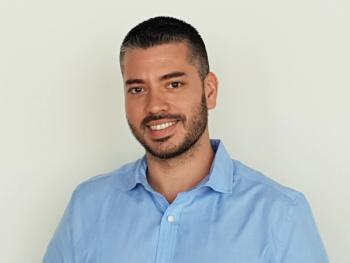
Physicians: Be Prepared to Get the Most from Your Next Media Interview
The biggest mistake you can make with your next media appearance is to think it stops when the interview is over. Here are some tips that show you how to leverage your spot in the limelight.
Recently a local TV reporter called me for an interview on pumpkin carving hand injuries during Halloween. She gave me about two hours to get ready, came to the office, and shot the footage. That experience helped get me ready for my next media appearance, and it kept getting easier.
In almost every category of medical practice, there are seasonal variations in patient problems. In orthopedics, there are more devastating wrist injuries during football season. In ENT and allergy practice, springtime brings a flood of new and returning allergy patients. Flu season fills up pediatrician offices every year.
These predictable fluctuations in patient problems are opportunities for you to reach out to local media and provide education for patients and exposure for your practice.
How to be ready for your next media interview
Here are four essentials you'll need to knock it out of the park the next time you're being interviewed by members of the media.
A compelling story
All of us have patients who have beaten the odds or seen a dramatic difference in their lives due to our expert care.
Think about most local news stories on TV. What do they share in common?
They usually start with an interview of a local resident, or feature a discussion on camera with a family affected by a tragedy or local ordinance.
Begin to frame your patients' stories this way when you see clinical successes in the office. This forms a great starting point for a story reporters will eat up.
You need permission from your patients to tell their stories if you want maximum impact and attention from the media. I recommend that you plant this seed early with your patients. Ask their permission to have a reporter contact them in the future. Make it easy for them to see the benefits of sharing what they’ve learned with other parents, kids, and patients.
You can “anonymize” your patient stories to be compliant with privacy regulations, but this may attract less attention from the media.
Useful information to share
Behind each story told by the media are "lessons for the viewers out there" - what can readers and viewers take away from what they see during a brief three-minute to four-minute clip on the local news?
This could be as simple as five or six bullet points of incisive, educational information that will help avoid a complication or help develop good habits.
In addition to a short burst of useful, easily digestible information given during an interview, you should also have a more in-depth article prepared for those who want more information.
I suggest an online article on your own website with more detail, pictures, and instructions on how to call your office for more information.
This strategy lets you provide useful information and promote your practice at the same time.
Reporters may not automatically mention your practice name and may even flub up the details of who you are and what you do. But if you provide them with meaty, in-depth information in an online article, they'll use that for story material and usually point their viewers/readers to it during their presentation.
Items to mention during the interview
You can't be assured that all the footage will be used during a media story. Do your best to add the following items into any interview responses you give:
• your practice name
• your website
• your area or category of expertise
• your partners' names
•types of problems or patients you treat
The key element that makes your media appearance successful
What makes this whole process successful is having your own website that you control.
Imagine getting a phone call from a local TV station: "Can you do an interview about X? We need to come over in the next hour."
Can you quickly put together a small article for your website or blog and be maximally prepared to promote your practice in this short amount of time?
If you have to call your webmaster and plead with them to let you pay them some exorbitant fee to get an article uploaded, you're not really in control of your online presence.
Sometimes you have only a few hours of notice before an interview or media appearance.
The best way to handle this is preemptively, where you decide ahead of time what hard-hitting, popular topics will be of interest to the media. Write articles in advance and post them on your website.
In a pinch, however, you can simply mention your practice website and provide educational links to pre-existing articles elsewhere online.
Find out more about C. Noel Henley and our other
Newsletter
Optimize your practice with the Physicians Practice newsletter, offering management pearls, leadership tips, and business strategies tailored for practice administrators and physicians of any specialty.






